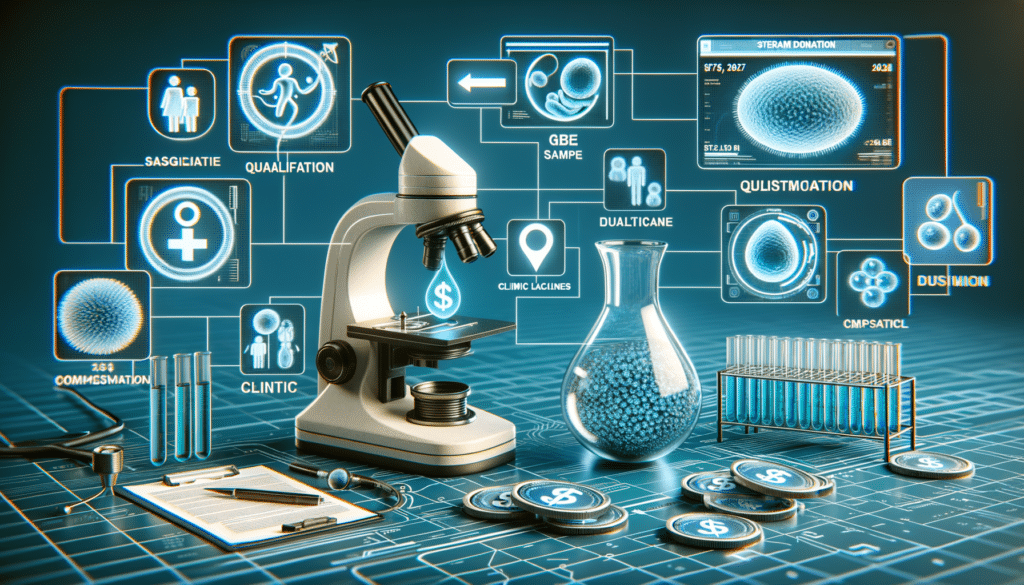How Paid Sperm Donation Works
Paid sperm donation is a process where individuals can donate their sperm to a clinic or sperm bank, typically for use in fertility treatments. This process involves several steps, beginning with initial screening and continuing through the actual donation and storage. Donors are usually compensated for their time and effort, although the specifics can vary widely depending on the clinic or bank.
Typically, potential donors undergo a rigorous screening process that includes medical history reviews, physical exams, and genetic testing to ensure the health and viability of the sperm. This is crucial not only for the recipients but also to maintain the integrity and reputation of the donation program.
Once a donor is accepted, they will be required to make regular donations over a period, which can range from several months to a year. The donation process itself is straightforward, involving the collection of sperm in a private setting at the clinic. The sperm is then analyzed, frozen, and stored until needed for a recipient.
Understanding the mechanics of sperm donation can be enlightening for those considering this path, whether as a donor or a recipient. It highlights the intersection of medical science and personal contribution, offering a unique way to assist others in their journey to parenthood.
Who Qualifies for Sperm Donation Programs
Eligibility for sperm donation programs is generally determined by a set of criteria aimed at ensuring the health and quality of the sperm. Potential donors are often required to meet specific age requirements, usually between 18 and 39 years old, although this can vary by clinic.
Health is a significant factor in qualifying for donation. Prospective donors must typically undergo comprehensive health screenings, including tests for genetic disorders, sexually transmitted infections, and overall physical health. This ensures that the sperm is healthy and minimizes risks to recipients.
In addition to health requirements, many programs also consider personal and family medical history. A history free of hereditary diseases is often a prerequisite. Lifestyle factors, such as smoking, drug use, and alcohol consumption, are also evaluated, as these can impact sperm quality.
While the criteria may seem stringent, they are in place to ensure the highest standards of care and safety for all parties involved. For those who meet the qualifications, sperm donation can be a rewarding way to contribute to the lives of others.
What to Know Before Donating Sperm
Before deciding to donate sperm, there are several important considerations to keep in mind. First, potential donors should be aware of the time commitment involved. Regular donations over several months are typically required, and each donation session can take a couple of hours.
It’s also crucial to understand the legal implications of sperm donation. In many regions, donors are required to sign contracts relinquishing any parental rights to offspring conceived using their sperm. This legal framework protects both the donor and the recipient family.
Privacy is another important aspect. Donors’ identities are usually kept confidential, although policies can vary by clinic. Some programs may offer the option for donors to be contacted by offspring once they reach adulthood, so understanding the clinic’s policies on anonymity is essential.
Finally, the compensation for sperm donation should be considered. While it can be a financial incentive, it should not be the sole reason for participating. The process is designed to help families, and donors should be motivated by a desire to contribute positively rather than purely financial gain.
By considering these factors, potential donors can make informed decisions about their participation in sperm donation programs, ensuring that their involvement is both meaningful and responsible.


